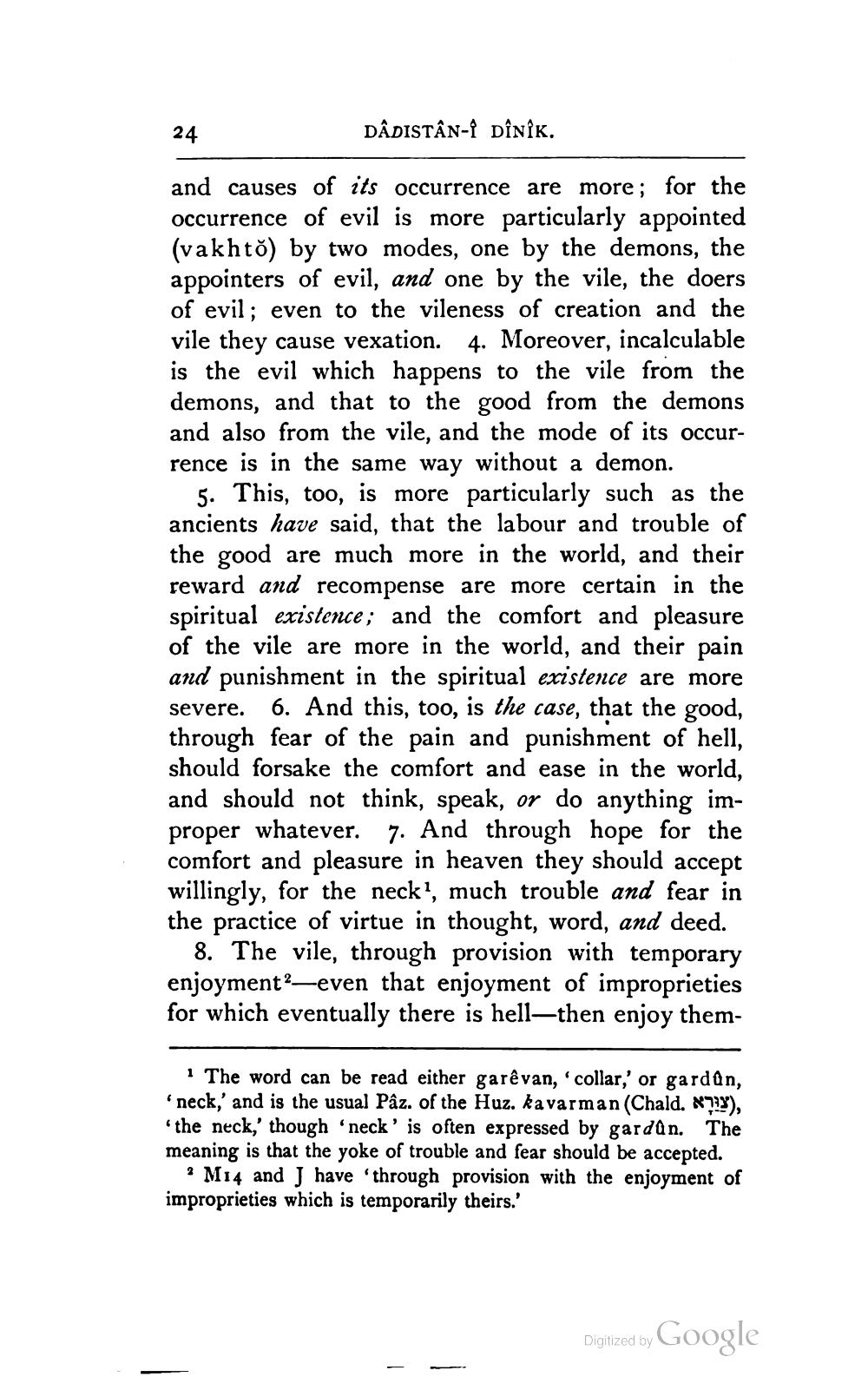________________
24
DÂDISTÂN-I DÎNÍK.
and causes of its occurrence are more; for the occurrence of evil is more particularly appointed (vakhto) by two modes, one by the demons, the appointers of evil, and one by the vile, the doers of evil; even to the vileness of creation and the vile they cause vexation. 4. Moreover, incalculable is the evil which happens to the vile from the demons, and that to the good from the demons and also from the vile, and the mode of its occurrence is in the same way without a demon.
5. This, too, is more particularly such as the ancients have said, that the labour and trouble of the good are much more in the world, and their reward and recompense are more certain in the spiritual existence; and the comfort and pleasure of the vile are more in the world, and their pain and punishment in the spiritual existence are more severe. 6. And this, too, is the case, that the good, through fear of the pain and punishment of hell, should forsake the comfort and ease in the world, and should not think, speak, or do anything improper whatever. 7. And through hope for the comfort and pleasure in heaven they should accept willingly, for the neck?, much trouble and fear in the practice of virtue in thought, word, and deed.
8. The vile, through provision with temporary enjoyment?—even that enjoyment of improprieties for which eventually there is hell—then enjoy them
1 The word can be read either garêvan, 'collar,' or gardan, neck,' and is the usual Pâz. of the Huz. kavarman (Chald. X7y), the neck,' though 'neck' is often expressed by gardun. The meaning is that the yoke of trouble and fear should be accepted.
? M14 and J have through provision with the enjoyment of improprieties which is temporarily theirs.'
Digitized by Google




